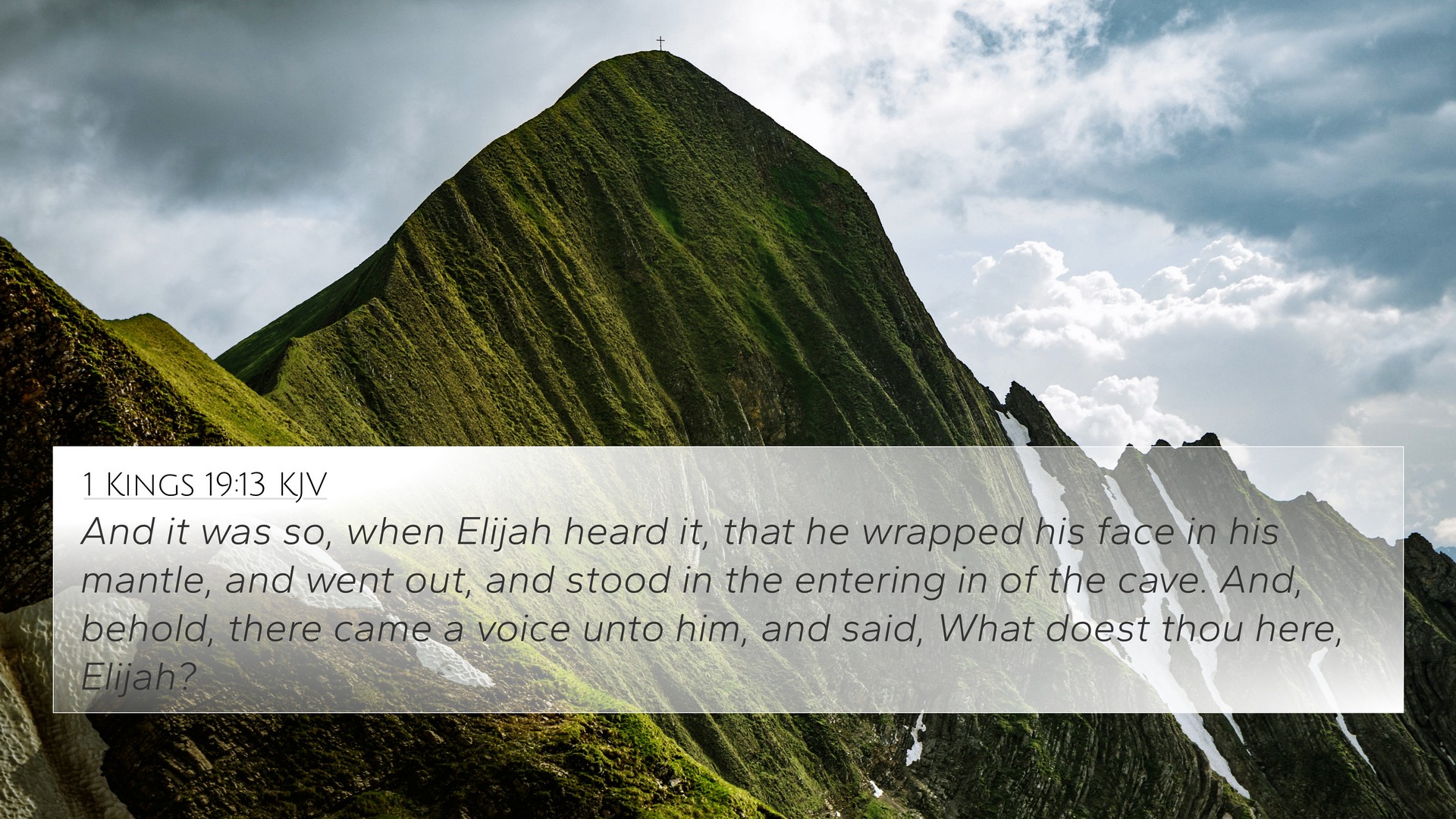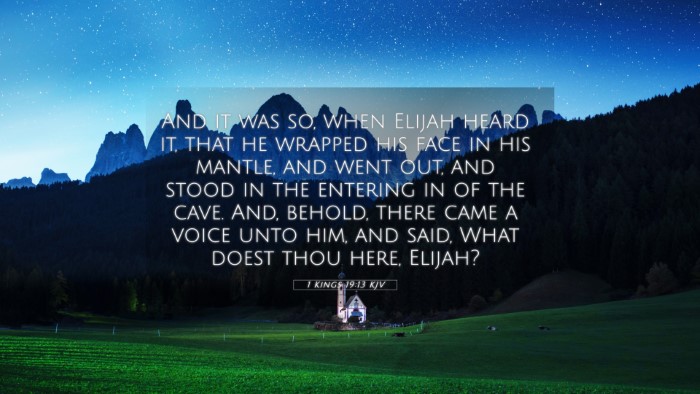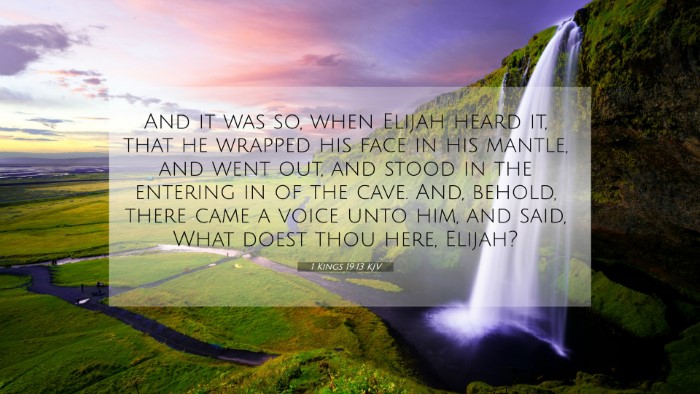Old Testament
Genesis Exodus Leviticus Numbers Deuteronomy Joshua Judges Ruth 1 Samuel 2 Samuel 1 Kings 2 Kings 1 Chronicles 2 Chronicles Ezra Nehemiah Esther Job Psalms Proverbs Ecclesiastes Song of Solomon Isaiah Jeremiah Lamentations Ezekiel Daniel Hosea Joel Amos Obadiah Jonah Micah Nahum Habakkuk Zephaniah Haggai Zechariah Malachi1 Kings 19:13 Similar Verses
1 Kings 19:13 Cross References
And it was so, when Elijah heard it, that he wrapped his face in his mantle, and went out, and stood in the entering in of the cave. And, behold, there came a voice unto him, and said, What doest thou here, Elijah?
Uncover the Rich Themes and Topics of This Bible Verse
Listed below are the Bible themes associated with 1 Kings 19:13. We invite you to explore each theme to gain deeper insights into the Scriptures.
1 Kings 19:13 Cross Reference Verses
This section features a detailed cross-reference designed to enrich your understanding of the Scriptures. Below, you will find carefully selected verses that echo the themes and teachings related to 1 Kings 19:13 KJV. Click on any image to explore detailed analyses of related Bible verses and uncover deeper theological insights.
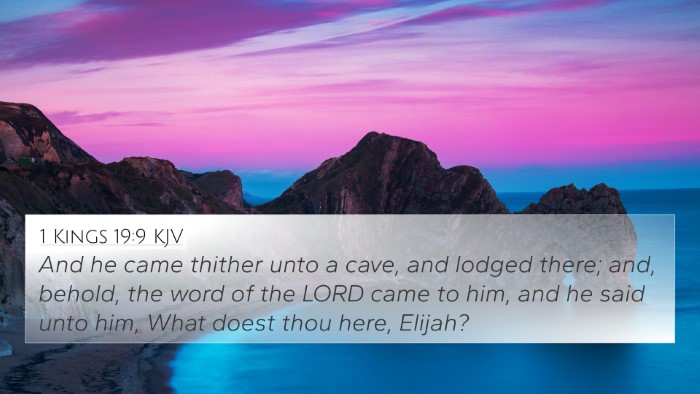
1 Kings 19:9 (KJV) »
And he came thither unto a cave, and lodged there; and, behold, the word of the LORD came to him, and he said unto him, What doest thou here, Elijah?
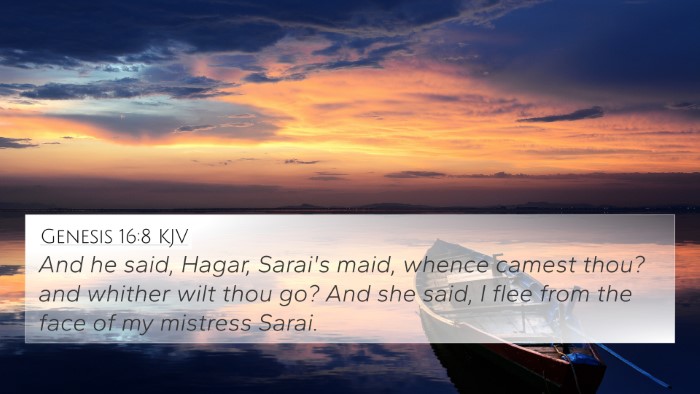
Genesis 16:8 (KJV) »
And he said, Hagar, Sarai's maid, whence camest thou? and whither wilt thou go? And she said, I flee from the face of my mistress Sarai.
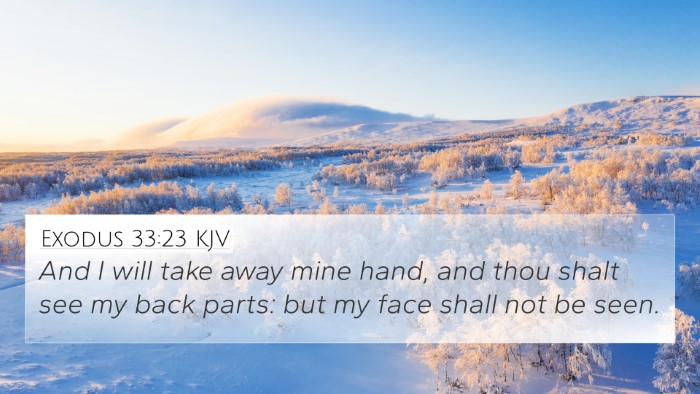
Exodus 33:23 (KJV) »
And I will take away mine hand, and thou shalt see my back parts: but my face shall not be seen.
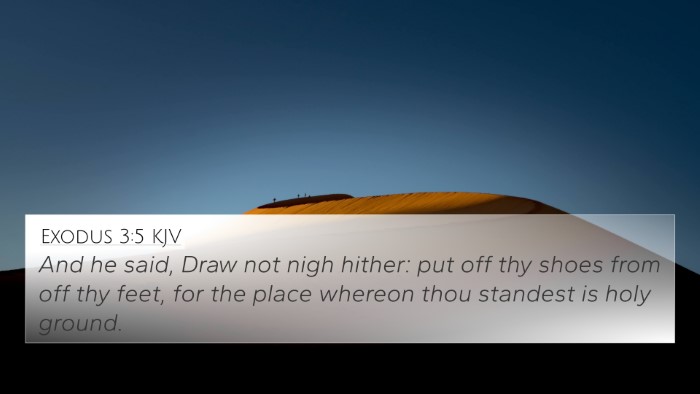
Exodus 3:5 (KJV) »
And he said, Draw not nigh hither: put off thy shoes from off thy feet, for the place whereon thou standest is holy ground.
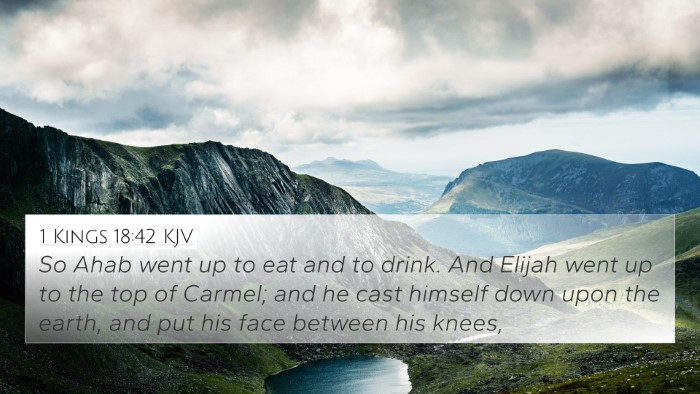
1 Kings 18:42 (KJV) »
So Ahab went up to eat and to drink. And Elijah went up to the top of Carmel; and he cast himself down upon the earth, and put his face between his knees,
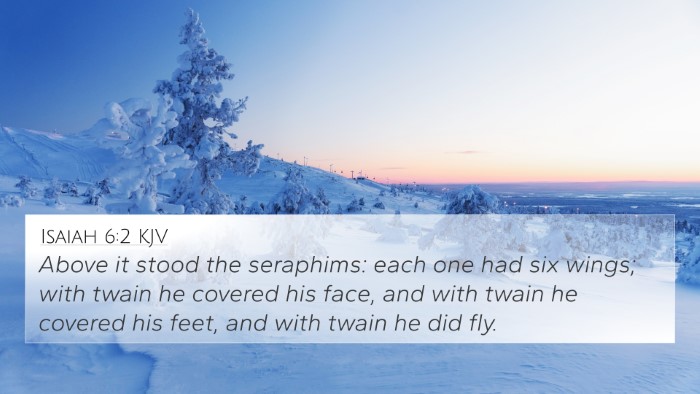
Isaiah 6:2 (KJV) »
Above it stood the seraphims: each one had six wings; with twain he covered his face, and with twain he covered his feet, and with twain he did fly.
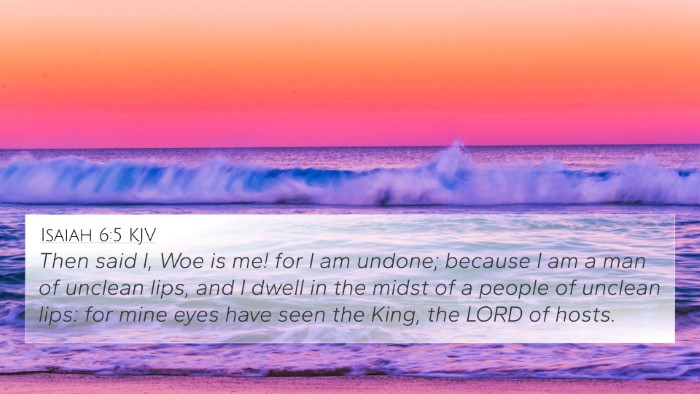
Isaiah 6:5 (KJV) »
Then said I, Woe is me! for I am undone; because I am a man of unclean lips, and I dwell in the midst of a people of unclean lips: for mine eyes have seen the King, the LORD of hosts.
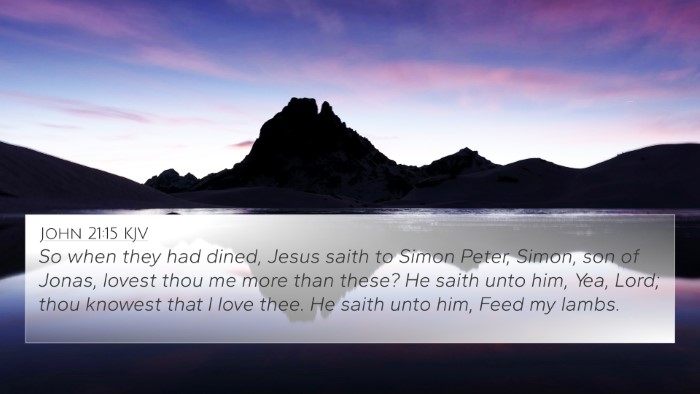
John 21:15 (KJV) »
So when they had dined, Jesus saith to Simon Peter, Simon, son of Jonas, lovest thou me more than these? He saith unto him, Yea, Lord; thou knowest that I love thee. He saith unto him, Feed my lambs.
1 Kings 19:13 Verse Analysis and Similar Verses
Understanding 1 Kings 19:13
1 Kings 19:13 describes a transformative moment for the prophet Elijah in the context of divine communication. The verse states:
"And it was so, when Elijah heard it, that he wrapped his face in his mantle and went out, and stood in the entering in of the cave. And, behold, there came a voice unto him, and said, What doest thou here, Elijah?"
Summary and Interpretation
This passage occurs after Elijah’s confrontation with the prophets of Baal and his subsequent flight from Queen Jezebel. Having fled to Horeb, Elijah experiences a profound encounter with God that highlights both divine presence and human vulnerability.
- Divine Communication: The voice that Elijah hears signifies God's active engagement with humanity. Though God exhibited power through natural phenomena like the wind, earthquake, and fire, His true presence was in the still, small voice (1 Kings 19:12). This emphasizes the importance of listening for God in quiet moments.
- Symbolism of the Mantle: Wrapping his face in his mantle is a gesture of reverence and acknowledgement of God's holiness. It serves as a reminder of the sacredness of his encounter and reflects the practice of biblical figures shielding their faces in the presence of the divine (Exodus 3:6).
- Self-Reflection and Purpose: God’s question, "What doest thou here, Elijah?" prompts introspection. It signifies a moment for Elijah to reflect on his mission, his fears, and his responsibilities as a prophet of the Lord. This question extends to readers, inviting them to examine their own lives.
Cross-References for Further Study
This verse is intricately linked with several passages throughout the Bible that enhance our understanding of its themes:
- Exodus 3:6: The encounter of Moses with God in the burning bush where he is instructed to take off his sandals due to holy ground, paralleling Elijah's reverence for God's presence.
- Isaiah 6:5: Isaiah’s vision of God's holiness and his reaction: “Woe is me! For I am undone.” It emphasizes the humility before God similar to Elijah's response.
- Matthew 17:5: The voice of God during the Transfiguration of Jesus presents a similar imperative to listen and heed God's message.
- Job 38:1: The Lord speaks to Job out of the whirlwind, paralleling the dramatic manifestations of God’s presence in both narratives.
- 1 Corinthians 1:27: God often chooses the foolish things to confound the wise, resonating with Elijah’s despair amidst the greatness of God's plan.
- Romans 10:17: Faith comes by hearing God's word, reflecting the theme of listening to the divine voice that echoes in the stillness.
- Psalm 46:10: "Be still, and know that I am God," echoing the calmness where God can be fully recognized.
- Revelation 3:20: The invitation of Jesus to hear and respond to His voice, drawing a connection between Elijah's experience and Christian faith today.
- James 1:19: The call to be quick to hear and slow to speak, resonating with the theme of attentive listening in the presence of God.
- Hebrews 12:25: The warning against refusing Him who speaks, which relates to Elijah’s moment of divine communication.
Connections to Broader Theological Themes
This passage serves as a foundation for various theological concepts and biblical themes, such as:
- The Sovereignty of God: God's control over nature and human events is showcased through Elijah’s experience, highlighting His methods of communication.
- Prophetic Call and Commission: Elijah’s encounter underlines the strength and seriousness of the prophetic office in Israel.
- Intimacy with God: The personal relationship portrayed here signifies the accessibility of God’s voice amidst life's trials.
- Faith in Crisis: Elijah's moment of vulnerability and fear connects with many believers' deep struggles and the assurance of God's presence.
Conclusion
In 1 Kings 19:13, we find an engaging interplay between fear, revelation, and divine communication. The insights from public domain commentaries give deeper understanding and context to Elijah’s encounter with God, offering valuable lessons for believers today. By examining the cross-references and connecting themes, individuals studying this passage can better grasp its significance within the broader narrative of Scripture.
Using Bible Cross-References
To fully appreciate and navigate these connections, one may use tools for Bible cross-referencing, including a comprehensive Bible concordance or a Bible cross-reference guide. Knowing how to find cross-references in the Bible, as described, enriches one’s study experience and enables a deeper understanding of how different scriptures relate to each other.
